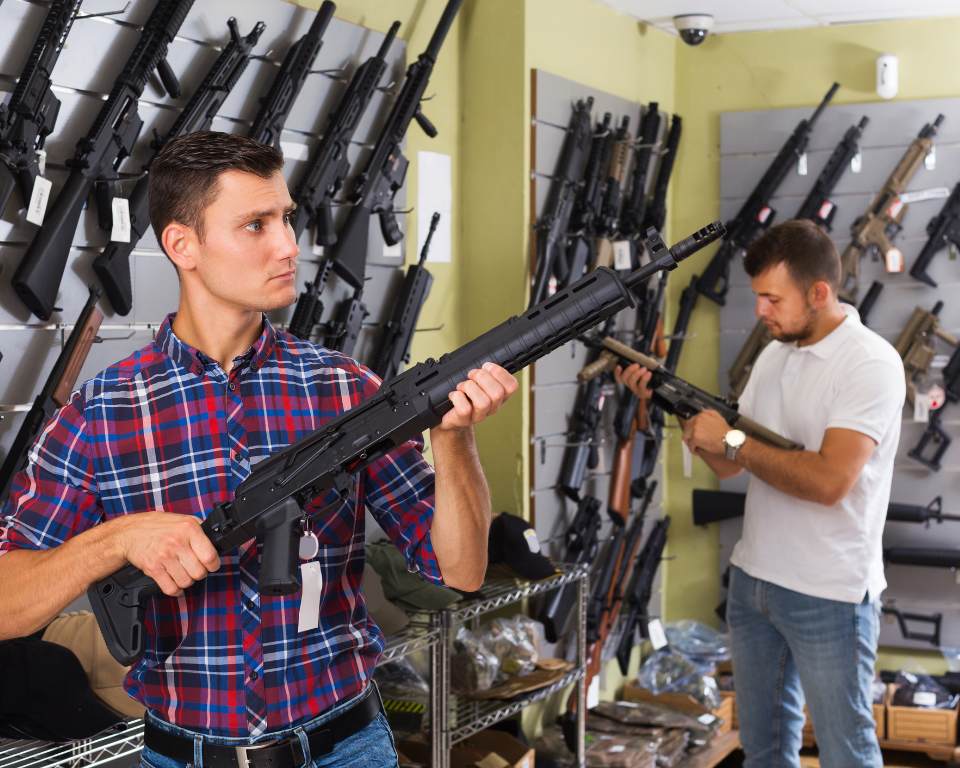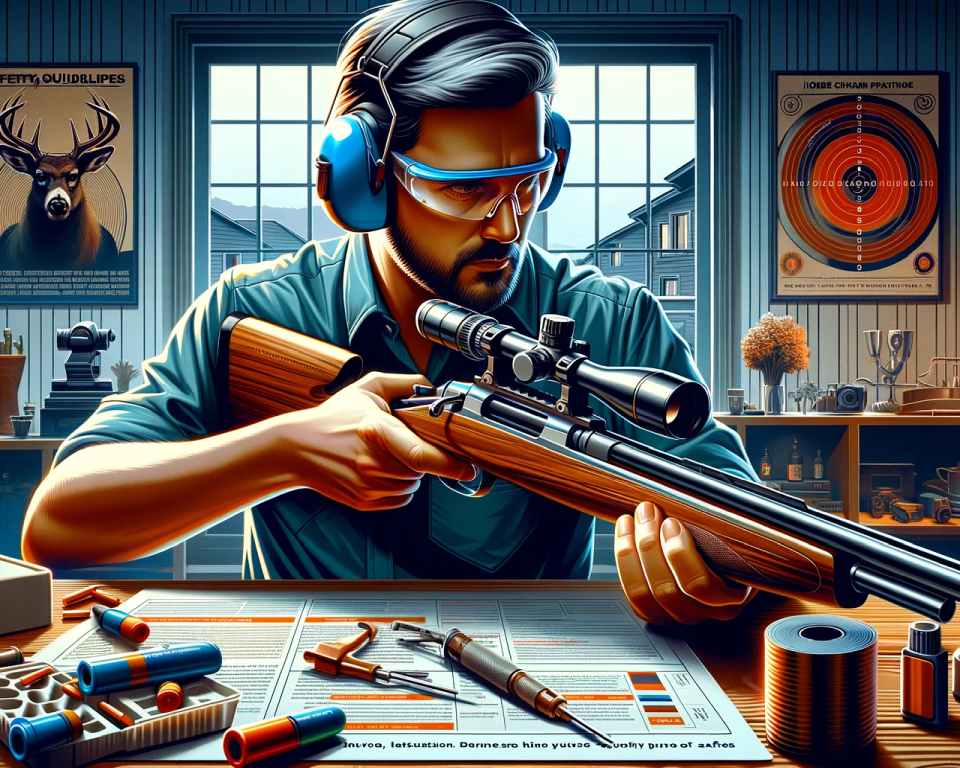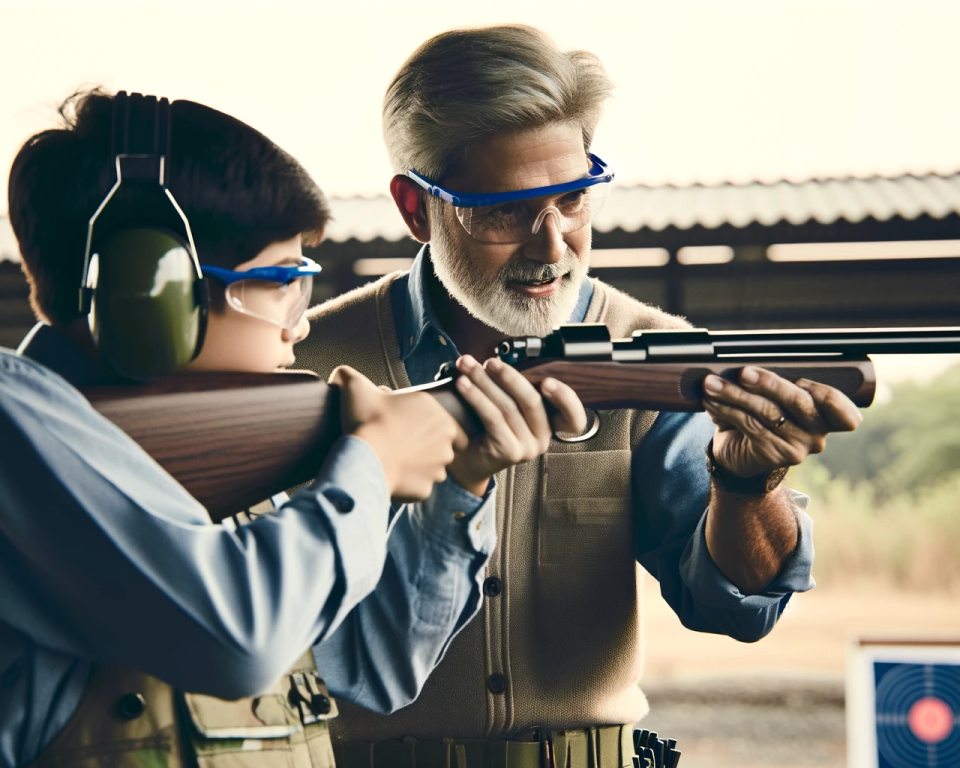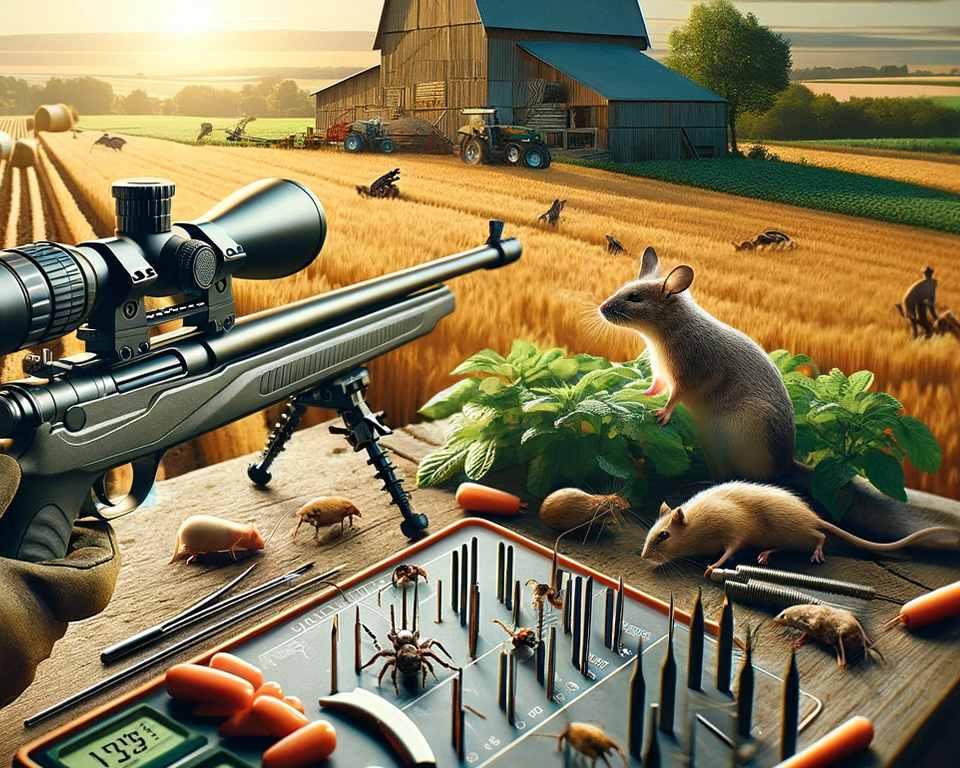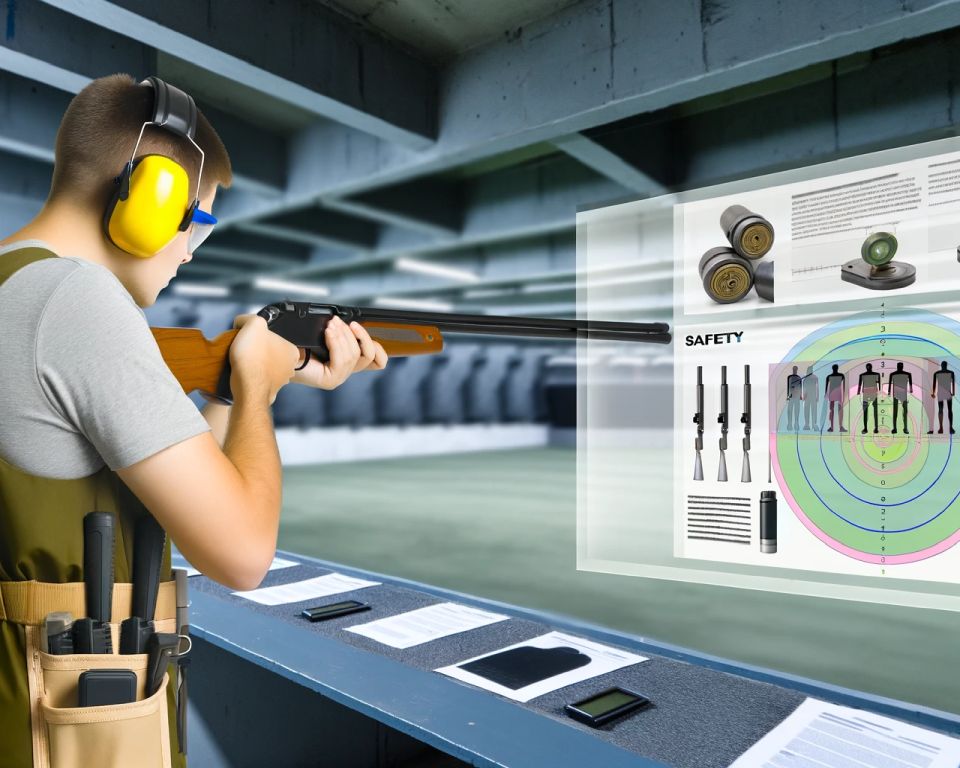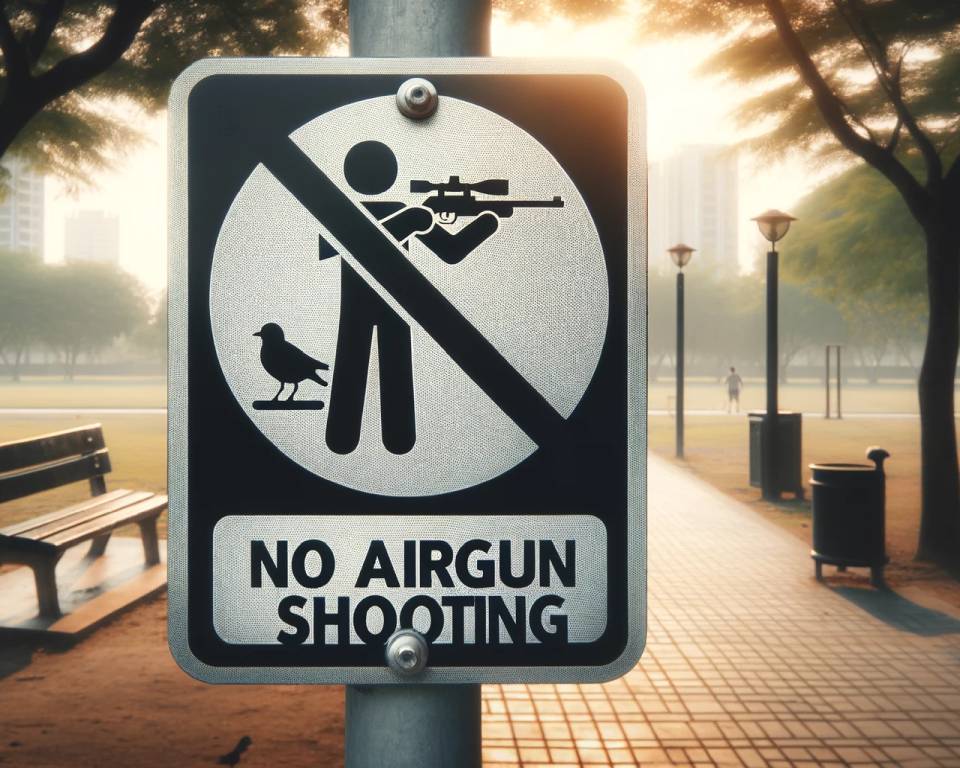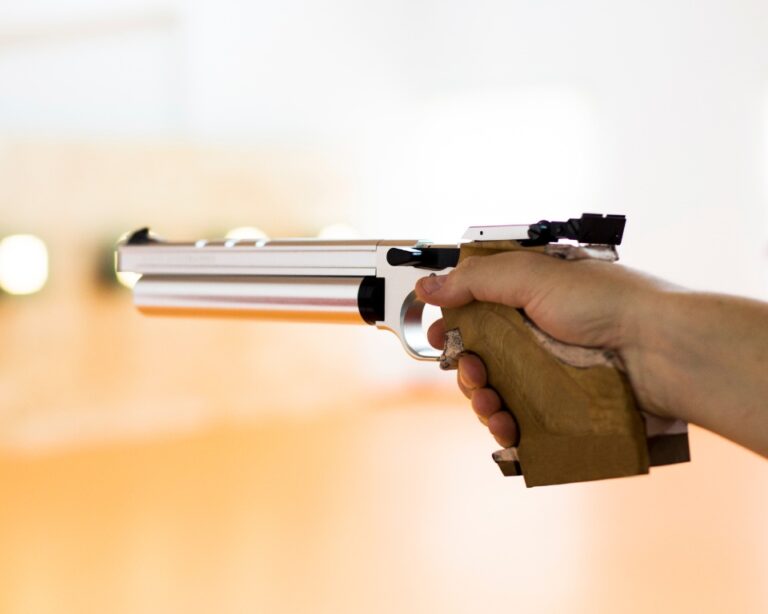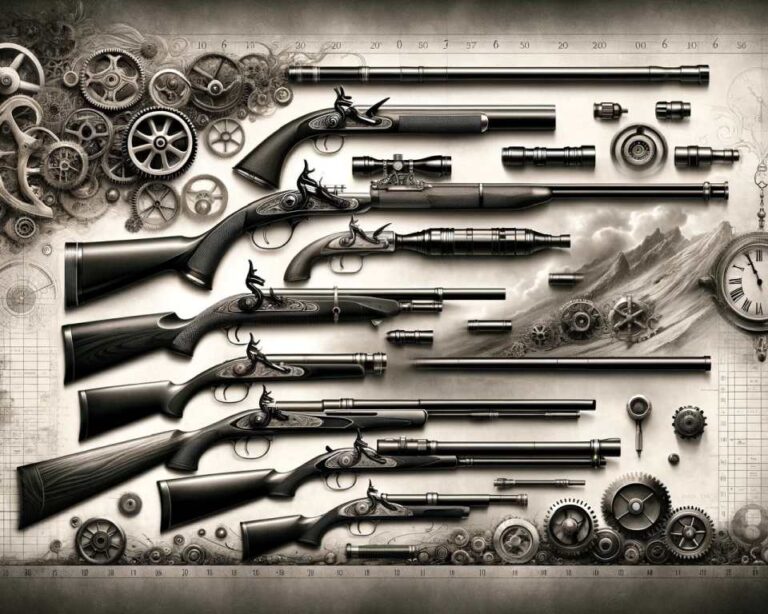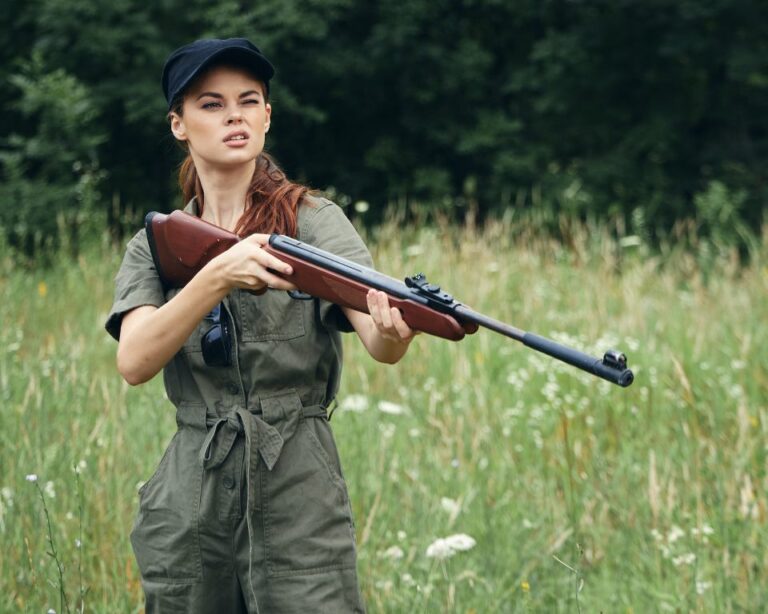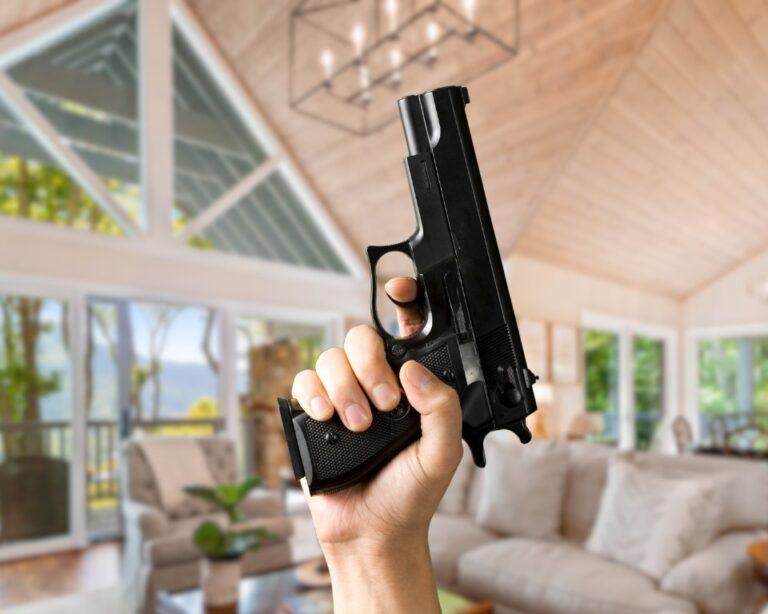The Comprehensive Guide to Airguns: Legalities, Safety, and Uses
At our website, we understand the importance of responsible and lawful airgun ownership. That’s why we have created this comprehensive guide to provide you with the essential information on airgun safety, legalities, and usage in the United Kingdom. Whether you are a current airgun owner or considering getting one, we will equip you with the knowledge you need to ensure safe and responsible airgun use.
Key Takeaways
- Understanding airgun laws and regulations is crucial to avoid legal issues and ensure compliance with firearms legislation.
- Airgun safety guidelines and best practices are essential to prevent accidents and injuries when handling and shooting airguns.
- Age restrictions for possessing and using airguns must be followed, and responsible use involves supervision and shooting only in appropriate locations.
- Secure storage of airguns is required to prevent unauthorized access, with options such as lockable cupboards or gun cabinets.
- Whether for hunting or target shooting, airguns must be used responsibly, following local regulations and seeking guidance for proper techniques and practices.
Understanding Airgun Laws in the UK
The laws surrounding airguns in the United Kingdom are governed by firearms legislation. It is crucial for airgun owners to familiarize themselves with these laws to ensure compliance and avoid legal complications. Understanding the various regulations can help ensure responsible and lawful ownership of airguns.
Restrictions on Airgun Use
One of the key aspects of airgun laws relates to the restrictions on the use of airguns in public places. It is generally prohibited to discharge an airgun in public areas unless there is a reasonable excuse, such as traveling to and from a shooting club or when in transit from a dealer.
“It is important to check specific local regulations and seek clarification to determine the applicable laws and any restrictions on shooting in public areas.”
Age Restrictions
Age restrictions for the possession and use of airguns are also an important aspect of the law. In the UK, it is illegal for individuals under the age of 18 to purchase or hire an airgun. Additionally, anyone under the age of 14 who possesses an airgun must be supervised by a parent or guardian.
Secure Storage Requirements
Secure storage is another key element of airgun laws. Owners are required to take reasonable precautions to prevent individuals under the age of 18 from accessing airguns. This may involve the use of lockable cupboards, gun cabinets, or securing the airgun to a fixed object.
Purchase, Sale, and Transportation Regulations
When it comes to purchasing, selling, and transportation of airguns, there are specific regulations that must be followed. It is important to comply with these requirements to avoid any legal issues. As an airgun owner, you must be aware of the rules and procedures surrounding these activities.
“By understanding airgun laws, owners can ensure they are compliant and responsible when it comes to the use, possession, and transportation of their airguns.”
Airgun Safety Guidelines and Best Practices
Ensuring the safety of ourselves and others is our top priority when handling airguns. By following these essential safety guidelines and best practices, we can prevent accidents and injuries while enjoying our airgun activities.
Treat Every Airgun as Loaded
One of the fundamental rules of airgun safety is to treat every airgun as though it is loaded. Even if you know the airgun is unloaded or you have just unloaded it, always handle it with the same caution and respect you would give to a loaded firearm. This mindset helps to maintain a constant awareness of the potential risks and encourages safe handling practices at all times.
Always Point the Airgun in a Safe Direction
Never underestimate the importance of muzzle direction. Always keep the airgun pointed in a safe direction, away from people, animals, and objects that could be unintentionally harmed if the airgun were to discharge. This simple but crucial rule helps to minimize the risk of accidents and ensures that any unintended discharge poses minimal danger.
Load Airgun Only When Ready to Fire
Avoid loading the airgun until you are ready to use it. By doing so, you reduce the risk of accidents due to accidental discharges or mishandling. Keep the airgun unloaded when not in use and make sure to only load it when you are in a safe shooting position and ready to engage your target.
Proper Storage, Transportation, and Supervision
When not in use, store your airgun in a secure location that restricts access to unauthorized individuals, especially children. Consider using a lockable cupboard, attaching the airgun to a fixed object, or utilizing a gun cabinet to ensure proper storage and prevent accidents. During transportation, keep the airgun in a secure case to avoid damage and unintended access. Additionally, always supervise anyone, particularly children, who handle or use an airgun to maintain a safe and responsible environment.
Remember, adherence to these airgun safety guidelines and best practices significantly reduces the risk of accidents and promotes responsible airgun handling. By prioritizing safety, we can confidently enjoy our airgun activities while respecting the well-being of ourselves and others.
Age Restrictions and Responsible Use of Airguns
When it comes to the possession and use of airguns in the United Kingdom, age restrictions play a crucial role. It is strictly forbidden for individuals under the age of 18 to purchase, hire, or have unauthorized access to an airgun. The law requires responsible adults who purchase airguns for individuals under 14 to exercise control over the weapon at all times.
Responsible use of airguns goes hand in hand with adhering to safety guidelines and ensuring proper supervision, especially when young shooters are involved. By following safety protocols, such as using appropriate safety gear, keeping the airgun pointed in a safe direction, and treating it as though it is loaded at all times, we can ensure the well-being of ourselves and those around us.
It is also crucial to consider the location where we choose to shoot our airguns. Responsible airgun use emphasizes shooting only in appropriate areas designated for such activities. By selecting suitable shooting ranges or private properties with proper permissions, we can avoid any potential legal issues and ensure the safety of our surroundings.
Ultimately, responsible airgun use begins with understanding and respecting the age restrictions in place, following safety guidelines, and being mindful of our actions. By doing so, we can enjoy the benefits of airgun ownership while maintaining a safe and responsible shooting environment.
Secure Storage of Airguns
To prevent unauthorized access to airguns, it is essential to store them securely. As responsible airgun owners, we must take reasonable precautions to ensure that individuals under the age of 18 cannot gain access to these firearms. Not only is this a legal requirement, but it also helps promote safety within our homes and communities.
There are several options available for secure airgun storage:
- Lockable Cupboard: Consider investing in a lockable cupboard specifically designed for storing firearms. This provides an added layer of protection by limiting access to authorized individuals only.
- Fixed Object Attachment: Attach your airgun to a fixed object using a secure lock or cable. This prevents the firearm from being easily removed or stolen.
- Gun Cabinet: A gun cabinet offers a dedicated storage space for airguns. These cabinets are often made of robust materials and equipped with multiple locks for enhanced security.
Remember, it is also important to keep the keys to your storage secure and separate from the firearms themselves. Storing airguns out of sight and away from ammunition further reduces the likelihood of accidents or unauthorized use.
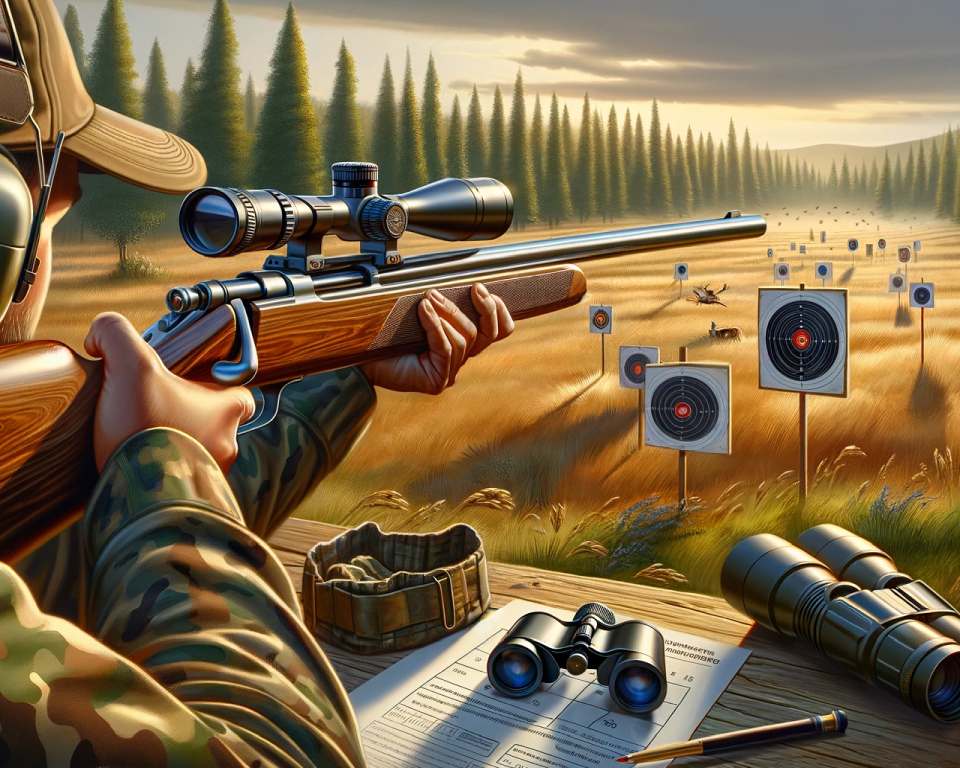
Use of Airguns for Hunting and Target Shooting
Airguns offer a versatile and enjoyable way to engage in hunting small game and target shooting. However, it is crucial to prioritize safety and responsibility when engaging in these activities.
When using airguns for hunting, it is important to remember that shooting should only be conducted on private property with proper permission. Respecting the boundaries and regulations set by landowners ensures a safe and legal hunting experience.
For target shooting, choosing suitable backstops is essential to prevent dangerous ricochets. By using appropriate targets and ensuring a safe shooting environment, you can enjoy the sport while minimizing potential risks.
Following local regulations regarding shooting distances from roads and public areas is crucial for ensuring the safety of bystanders and maintaining a positive image for airgun enthusiasts.
Seeking Guidance from Qualified Instructors
If you are new to shooting, seeking guidance from qualified instructors can provide valuable knowledge and skill development. They can help you understand the proper techniques, safe handling practices, and effective shooting strategies specific to airguns.
Joining shooting clubs is another excellent way to immerse yourself in the airgun community. These clubs offer opportunities for education, practice, and participation in shooting events. They can connect you with fellow enthusiasts who can share their experiences and provide ongoing support as you develop your shooting skills.
“Joining a shooting club not only helps improve your shooting skills, but it also provides a supportive community where enthusiasts can connect and share their passion for airgun shooting.”
By seeking guidance from experienced instructors and joining shooting clubs, you can enhance your shooting abilities, expand your knowledge, and foster a sense of camaraderie among fellow airgun enthusiasts.
Airgun Energy Limits and Certification
Airguns are subject to specific energy limits as defined by the law. This is an important aspect to consider when owning and using an airgun. Guns that fall below this energy threshold are not classified as firearms. However, air rifles with a muzzle energy greater than 12 foot-pounds require a firearms certificate issued by local police forces. On the other hand, air pistols with muzzle energies exceeding six foot-pounds are prohibited without the authority of the Home Secretary.
It’s also worth noting that in Scotland, additional regulations may apply. Certain airguns with specific muzzle energies may require an Air Weapon Certificate or permit for lawful ownership and use. Compliance with these energy limits and certification requirements is vital to ensure responsible and legal use of airguns.
“Understanding and adhering to the energy limits and certification requirements is crucial to ensure responsible and legal use of airguns.”
To have a better understanding of energy limits and certification processes, it is recommended to consult local authorities, such as the police or relevant governing bodies. They can provide detailed information and guidance on the specific requirements in your area.
Why are energy limits and certification important?
- The energy limits help differentiate airguns from firearms, establishing appropriate legal classifications.
- Certification requirements ensure that individuals using airguns with higher energy levels have undergone the necessary checks and meet the standards set by authorities.
- By adhering to these limits and requirements, airgun owners contribute to the overall safety and regulation of the airgun community.
Airguns and Pest Control
When it comes to vermin control on agricultural or private properties, airguns can be a valuable tool. They provide an efficient and humane method of dealing with pests that may cause damage or pose a threat. However, it is important to remember that using airguns for pest control comes with responsibilities.
Adhering to local laws and regulations surrounding pest control is crucial. Different areas may have specific restrictions or permits required for using airguns in this capacity. As responsible airgun users, we must always comply with these rules to ensure the safety of others and protect the environment.
Whether you’re dealing with rodents, birds, or other nuisance animals, proper shot placement is essential. Taking the time to aim carefully and make accurate shots can help achieve humane kills and minimize suffering. It’s important to prioritize the welfare of the animals we are targeting.
Remember, pest control should always be conducted with care and consideration. By using airguns responsibly and in compliance with local regulations, we can effectively manage vermin populations while minimizing any adverse impacts.
If you are unsure about the specific laws in your area or need guidance on responsible pest control practices, it may be beneficial to consult with local authorities or pest control professionals. They can provide valuable advice and ensure that you are operating within the legal framework.
Using airguns for pest control can be an effective and environmentally friendly solution. Let’s make sure we use this tool responsibly, prioritizing safety, compliance, and humane practices.
Seeking Guidance and Training for Airgun Use
For individuals new to airgun use, it is essential to seek guidance and training from qualified instructors. The knowledge and instruction provided by shooting clubs with airgun sections can be invaluable in learning safe handling techniques and responsible use of airguns. Joining a shooting club not only offers a supportive community but also provides opportunities for practice, skill development, and participation in shooting events.
Airgun Safety and Handling Tips for Beginners
For beginners entering the world of airguns, it is crucial to prioritize safety and acquire foundational handling skills. Adhering to safety guidelines enables enjoyable and responsible airgun use while minimizing the risk of accidents. By following these essential tips and seeking guidance from experienced shooters, beginners can become proficient and responsible airgun users.
Treat the Airgun with Caution
Always treat an airgun as if it is loaded, even when you are certain it is not. This precaution establishes a habit of safe handling and prevents accidental discharge. To further enhance safety, never point the airgun at anything you do not intend to shoot, even if it is unloaded.
Know How to Safely Load and Unload
It is vital to understand the proper procedure for loading and unloading an airgun. Consult the manufacturer’s instructions to familiarize yourself with the specific steps for your airgun model. Pay particular attention to the process of engaging and disengaging the safety mechanism, ensuring it is properly engaged before handling the airgun.
Develop Good Shooting Habits
As a beginner, it is essential to develop good shooting habits from the start. Keep your fingers off the trigger until you are ready to shoot and have identified a safe target. Maintaining control of the airgun by firmly gripping it helps ensure accurate shooting and prevents accidental discharges.
Regular Practice and Seeking Guidance
Regular practice is instrumental in improving shooting skills and developing confidence with airguns. Set aside dedicated time for practice sessions, focusing on accuracy and proper handling techniques. Additionally, seek guidance from experienced shooters or join shooting clubs to learn from their expertise. Engaging with others in the airgun community allows for valuable insights and shared experiences.
Remember, safety should always be the top priority when handling airguns. By treating the airgun with caution, knowing how to load and unload safely, developing good shooting habits, and seeking guidance from experienced shooters, beginners can foster a solid foundation of responsible airgun use.
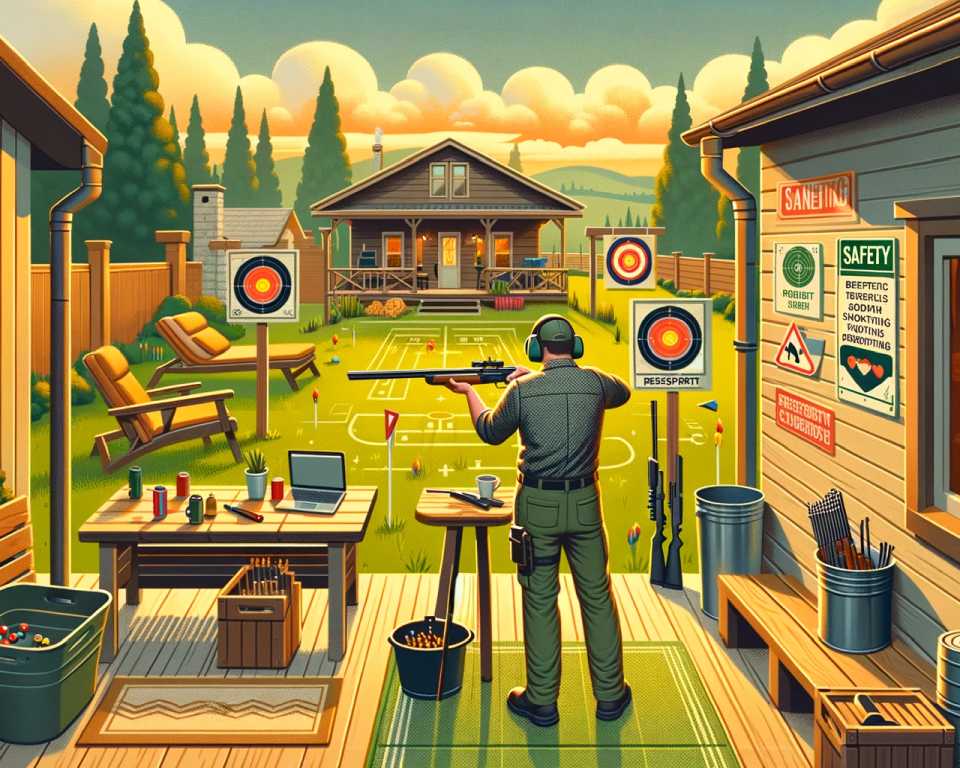
Responsible Airgun Shooting on Private Property
When engaging in airgun shooting on private property, it is our responsibility to prioritize safety and adhere to responsible shooting practices. To ensure a safe and enjoyable experience, there are several key aspects to consider.
Obtaining Shooting Permissions
Before conducting any airgun shooting activities on private property, it is crucial to obtain permission from the landowner or the person who holds the sporting rights. By seeking their approval, we can demonstrate respect for their property and ensure that we are within our legal rights to engage in shooting activities on the premises.
Understanding the boundaries of the shooting area is equally important. Knowing the designated areas for shooting will not only help us stay within the legal boundaries but also prevent any accidental damage to neighboring properties or the surrounding environment.
Taking Precautions for Safety
To ensure our safety and the safety of others, it is essential to take appropriate precautions when shooting airguns on private property. Using suitable backstops or pellet catchers can prevent pellets from traveling beyond the designated shooting area, reducing the risk of accidents or property damage.
Always shooting within our abilities is of utmost importance. It is crucial to know our limits as shooters and avoid attempting shots that are beyond our skill level. This helps to ensure accuracy, control, and most importantly, safety during the shooting session.
Practicing Responsible Airgun Shooting
We must always remember that responsible airgun shooting involves not only complying with legal requirements but also respecting the environment and other individuals. By taking care to avoid unnecessary disturbance to wildlife, livestock, or other people in the vicinity, we demonstrate our commitment to responsible shooting practices.
If shooting in an area with nearby dwellings, we should be mindful of the potential noise impact and consider using appropriate noise reduction methods or adjusting shooting times to minimize disturbance to others.
By following these responsible airgun shooting practices on private property, we can ensure a safe and enjoyable shooting experience while being respectful of the rights and concerns of others.
Remember, responsible airgun shooting is not only about complying with regulations but also about being considerate, cautious, and mindful of the broader impact of our shooting activities.
Airgun Shooting in Public Places
When it comes to airgun shooting in public places, it’s important to be aware of the laws and regulations that govern this activity. In general, shooting airguns in public areas is prohibited unless you have a reasonable excuse. It’s crucial to understand what constitutes a reasonable excuse and familiarize yourself with the local regulations and restrictions in your area.
A reasonable excuse may include traveling to and from a shooting club or transporting a newly purchased airgun from a dealer. However, it’s always recommended to check with local authorities and seek clarification to ensure you are in compliance with the applicable laws.
While airgun shooting can be enjoyed in designated areas such as shooting ranges or private properties, it’s important to prioritize safety and respect for public spaces. Shooting responsibly and legally helps maintain a positive image for the airgun community and ensures the safety of everyone involved.
“Responsible airgun shooting means being aware of the laws, following safety guidelines, and using common sense when choosing where to shoot.”
Remember, it’s our collective responsibility as airgun enthusiasts to abide by the laws and regulations, ensuring the continued enjoyment of this sport for everyone. By staying informed and respecting public spaces, we contribute to the preservation of our rights and the safety of those around us.
Next, we’ll explore the specific laws and restrictions regarding airguns in Scotland, offering insights into the legal landscape and regulations unique to this region.
Airgun Laws and Restrictions in Scotland
In Scotland, airgun owners must adhere to specific laws and regulations governing the possession, use, purchase, and acquisition of airguns. To ensure lawful and responsible use, it is important for airgun owners in Scotland to understand and comply with these regulations.
Air Weapon Certificate or Visitor Permit
One key requirement in Scotland is the need for an Air Weapon Certificate or visitor permit for the possession, use, purchase, or acquisition of an airgun. This certificate or permit serves as proof that the individual has met the necessary legal requirements and is authorized to possess or use an airgun.
Muzzle Energy Limits
Additionally, Scotland has specific muzzle energy limits in place for airguns. These limits determine the power at which an airgun can operate before it falls under firearms legislation. It is important for airgun owners to be aware of these limits and ensure that their airguns comply with the prescribed energy thresholds.
“Compliance with the Air Weapon Certificate requirement and understanding the muzzle energy limits are essential factors in ensuring the responsible and legal use of airguns in Scotland.”
Airgun owners in Scotland should familiarize themselves with the specific regulations pertaining to their location and comply with them to prevent any legal complications. By adhering to these laws and restrictions, airgun owners can enjoy their hobby safely, responsibly, and within the confines of the law.
Airgun Shooting and Animal Welfare Laws
When using airguns for hunting, it is important to be aware of animal welfare laws. Intentionally or recklessly killing certain wild animals or causing unnecessary suffering to pets through shooting can be criminal offenses. It is our responsibility as airgun enthusiasts to exercise responsible hunting practices and ensure the humane treatment of animals.
When engaging in airgun hunting, it is crucial to comply with any specific regulations regarding the hunting of certain species. Some animals may be protected by law, and hunting them without the appropriate permits or licenses can result in legal consequences. Understanding the laws and regulations governing airgun hunting in your area is essential to avoid unintentional violations.
“Responsible hunting is not only about achieving a clean and ethical kill, but also about respecting the welfare of the animals we engage with.”
By following ethical hunting practices, we can demonstrate our commitment to both animal welfare and responsible airgun usage. This includes practicing proper shot placement to ensure a clean and humane kill, using appropriate caliber and ammunition for the targeted game, and ensuring that the animals do not suffer unnecessarily.
Additionally, it is vital to consider the safety of non-target animals and bystanders when engaging in airgun hunting. Always be mindful of your surroundings and choose shooting locations that minimize the risk of unintended harm. Properly identifying your target and what lies beyond it can prevent accidents and ensure the well-being of both animals and people in the vicinity.
Airgun Licensing and Permit Requirements
In general, airguns do not require a license for possession or use in England and Wales. However, in Scotland, an Air Weapon Certificate or visitor permit may be necessary for the use, possession, purchase, or acquisition of airguns. It is essential to understand the specific licensing and permit requirements in the area where airguns are used to ensure compliance with the law.
Whether you are a seasoned airgun enthusiast or a beginner looking to purchase your first airgun, it is important to familiarize yourself with the licensing and permit regulations in your region. This will help you understand your rights and responsibilities as an airgun owner, ensuring that you can enjoy your hobby or sport while adhering to legal requirements.
In England and Wales, the possession and use of airguns are not subject to licensing or permits. However, it is still crucial to use airguns responsibly and safely, following the guidelines and regulations set by firearms legislation. This includes treating your airgun as if it were a real firearm, always pointing it in a safe direction, and storing it securely to prevent unauthorized access.
On the other hand, Scotland has specific laws governing the possession, use, and acquisition of airguns. If you reside or plan to shoot in Scotland, you will need to obtain an Air Weapon Certificate or visitor permit, depending on your circumstances. These documents are issued by Police Scotland, and failure to comply with the licensing requirements is a criminal offense.
Before applying for an Air Weapon Certificate or visitor permit, it is advisable to familiarize yourself with the eligibility criteria, application process, and any additional restrictions that may apply. By doing so, you can ensure that you meet all the necessary requirements and avoid any legal complications.
Remember, airgun licensing and permits exist to regulate the responsible use and possession of airguns, aiming to ensure public safety and prevent misuse. So, whether you are in England, Wales, or Scotland, it is essential to understand and comply with the licensing and permit requirements in your area.
Further Resources and Organizations for Airgun Users
For airgun enthusiasts looking for additional guidance and information, there are several reputable organizations that cater to their needs. The National Small-bore Rifle Association (NSRA) is a prominent entity that provides valuable resources and support to airgun users across the United Kingdom. With its extensive knowledge and expertise, the NSRA offers guidance on all aspects of airgun usage, safety, and training, ensuring responsible and informed firearm ownership.
Another organization that airgun users can turn to is the British Association for Shooting and Conservation (BASC). Recognized for its commitment to promoting responsible shooting practices, the BASC offers a wealth of resources and training materials specifically tailored to airgun enthusiasts. From safety guidelines to legal advice, the BASC equips airgun users with the necessary information to enjoy their hobby while upholding the highest standards of safety and legality.
The British Shooting Sports Council (BSSC) is yet another organization that supports the interests of airgun users. Comprising various shooting associations and trade bodies, the BSSC serves as a unified voice for the shooting community. Through its representation and advocacy, the BSSC contributes to the development of airgun policies and works towards furthering the interests and rights of airgun enthusiasts.
When seeking resources and information related to airguns, it is also worth exploring the offerings of The Gun Trade Association (GTA). The GTA represents the interests of the firearm industry in the United Kingdom and provides valuable insights into the latest advancements in airgun technology, as well as market trends and regulatory developments. By staying connected with the GTA, airgun users can remain informed about the ever-evolving landscape of the industry.

